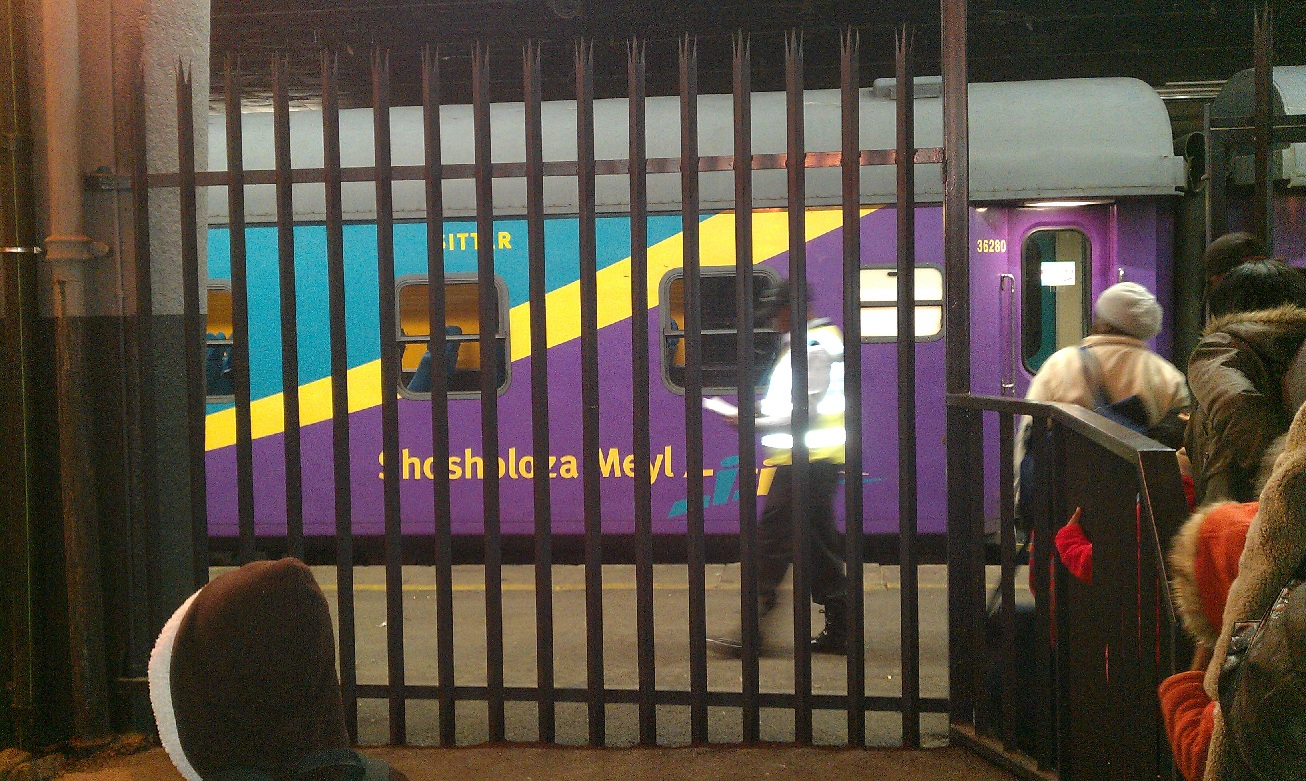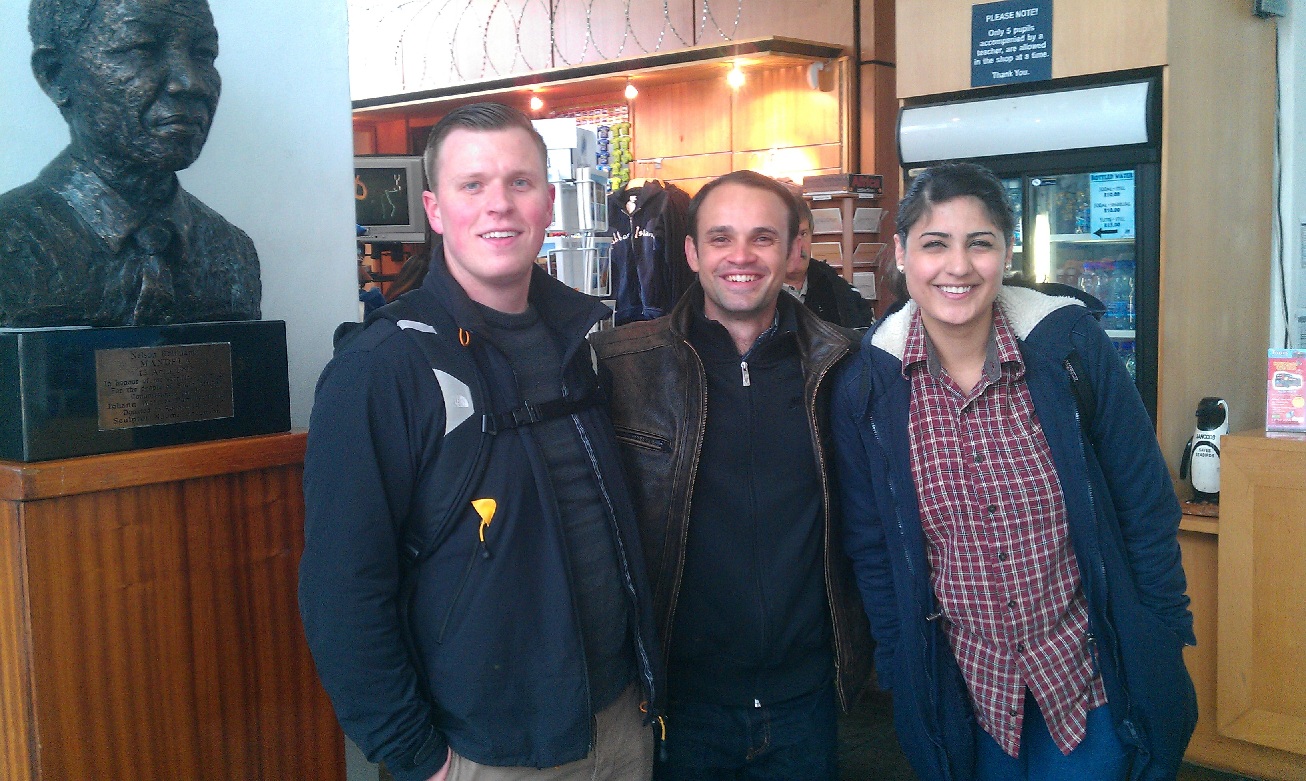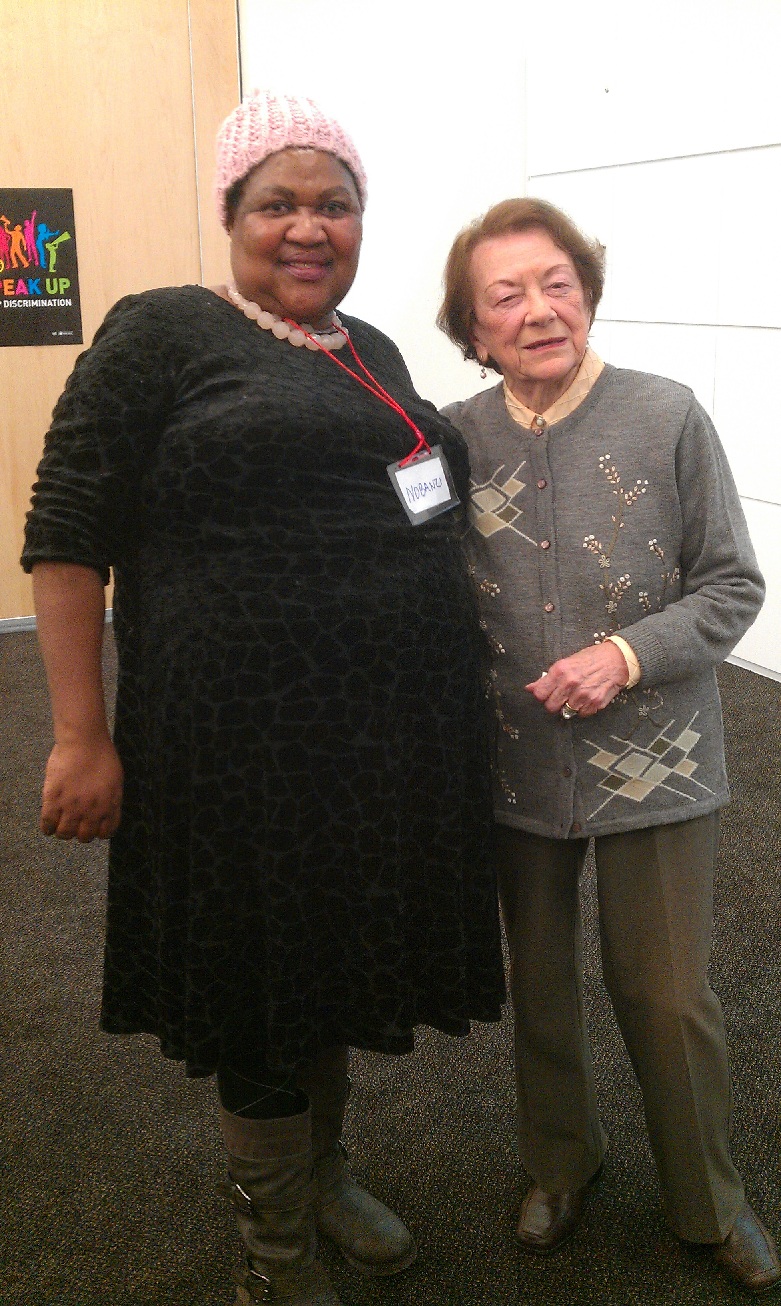Traveling through space and time

This past week, I took the Shosholoza-Meyl train from Johannesburg to Worcester, a small town in Western Cape, the other side of South Africa. The trip lasted over 26 hours, on the same train, with only five to ten minute stops at various stations along the way to drop off and pick up passengers. The train was packed with people, and works on a first come, first serve basis—there are no assigned seats. And apparently no limits on how many people can be on the train at the same time. Some travelers had taken over the bathrooms, piling their luggage in there and sleeping inside. I had to walk across several train wagons, stepping through trash, leftovers, empty bottles, and babies sleeping on the floor, to finally find an open and available bathroom.
Thankfully, a family that was sitting in seats next to me had taken a liking to me, and the mother kept offering and sharing pieces of chicken, fruit, and other snacks with me. They also helped to watch over my luggage when I went to the bathroom. All throughout the trip, I imagined what it must have been like, just over 120 years ago, when Gandhi took the fateful train across South Africa that would inspire his sense of activism.

I was so happy to finally arrive in Worcester, and to meet Harris Sibeko, who soon became like an uncle to me here. I was relieved to eat some dinner, sleep, take a bath, and brush my teeth—in that order. The next day, uncle Harris and I walked around the Zwelethemba township, where I am staying. He and his wife were ANC freedom fighters from the early 70s, and the apartheid regime imprisoned him several times for simply organizing his community. The respect that the Zwelethemba inhabitants have for him is visible from the way everyone greets him on the streets. That same weekend, he invited me to the wedding of his niece, which took place in Khayelitsha, the township just outside Cape Town. Here we are above, just after the wedding party clapped and cheered as I showcased sufficient dancing abilities to be given the nickname, “Michael Jackson.”

Cape Town, an hour drive south of Worcester, is in so many ways different from the Johannesburg and Pretoria area that I have known for the last month. The air here is much crisper, the spaces more open, and the people seem less stressed. While in Cape Town, I was able to meet up with two other William & Mary Law students in South Africa, Fahimeh Manjili and John Palenski (above). We tried to visit Robben Island, where Nelson Mandela was imprisoned for 27 years, but unfortunately the ferry was closed because of the windy and rainy weather. We will try our luck next time.

Yesterday, Khulumani members from Worcester and Zwelethemba rented a 15-passenger taxi and went to spend the day in worskshops at the Jewish Holocaust Museum in Cape Town. There, tour guides took us through the museum, where we learned more about the horrors of World War II death camps and the way Nazism was able to grow. A holocaust survivor, Meryem, then told us her own story of how she survived the Warsaw ghetto, the concentration camp, the death march, and the process of re-introducing food to her body once the American soldiers freed her camp. Above, Khulumani member mama Nobanzi, and Meryem. We also had survivors of the Rwandan genocide tell us their story, and the wife of Harris Sibeko tell her own story of her South African experience.